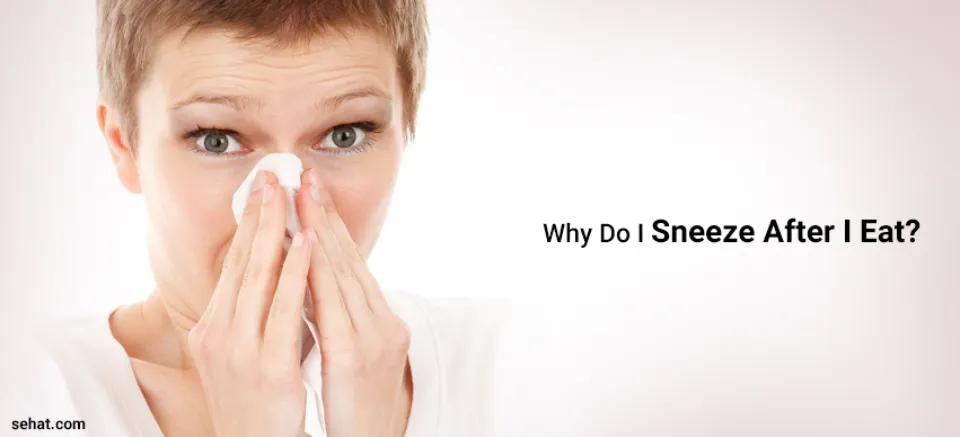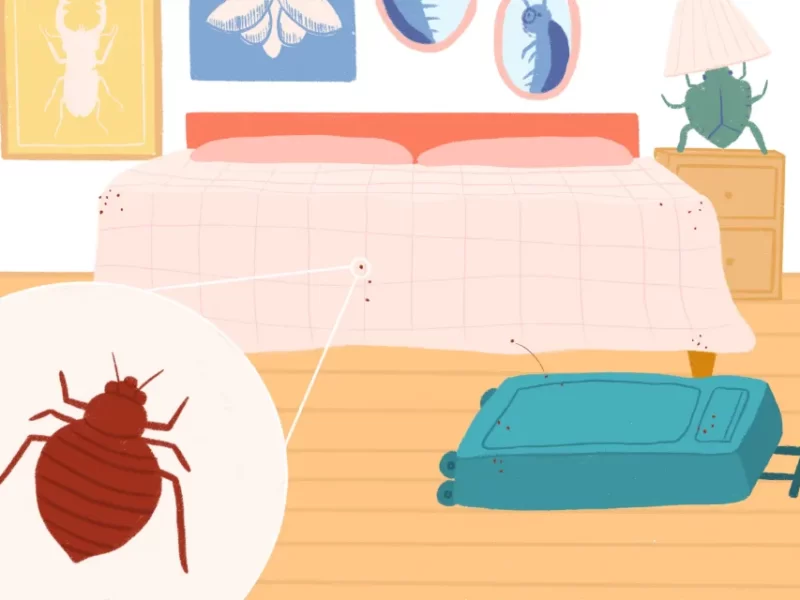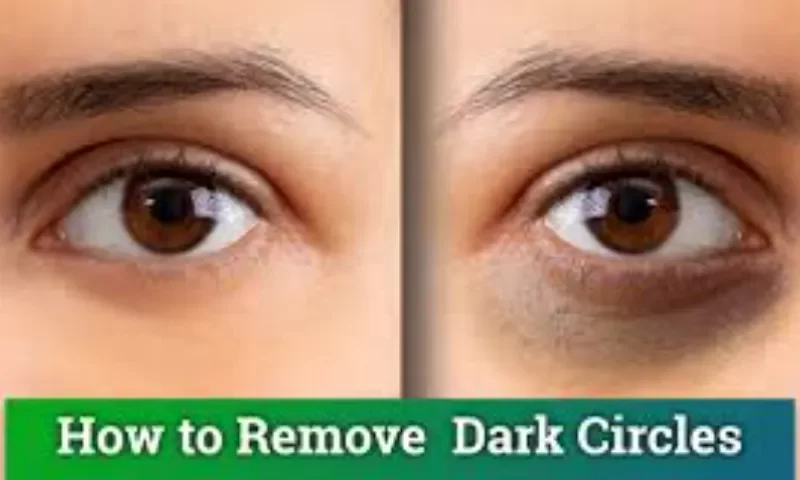A person’s natural reaction to irritation in their nasal cavity is to sneeze. Eating food can also cause sneezing. Any food could make someone sneeze, or perhaps only a few foods.
Sneezing is frequently brought on by breathing in something that irritates the nose, but it can also be brought on by breathing in cold air, gazing into bright lights, plucking the hair on the outside of the eyebrows, or eating food.
In this article, we’ll look specifically at the reasons why people sneeze while eating and how to stop it from happening.
Why Do I Sneeze After Eating?
There are numerous reasons why someone might sneeze after eating. These include:
Satiation Reflex
Following a substantial meal, some people might sneeze. Snatiation, a combination of the words “sneeze” and “satiation,” is the term used to describe this reflex.’
When the stomach is full and stretched, a person experiences this reflex. One sneeze or several sneezing fits could result from this. Although the cause is unknown, there might be a genetic element.
Gustatory Rhinitis
A person who has gustatory rhinitis will specifically sneeze after eating. Rhinitis is a general term for nasal irritation or swelling.
Nonallergic rhinitis refers to a type of rhinitis that affects the pharynx and is not caused by allergies. It occurs when environmental triggers make the nasal nerves overly sensitive.
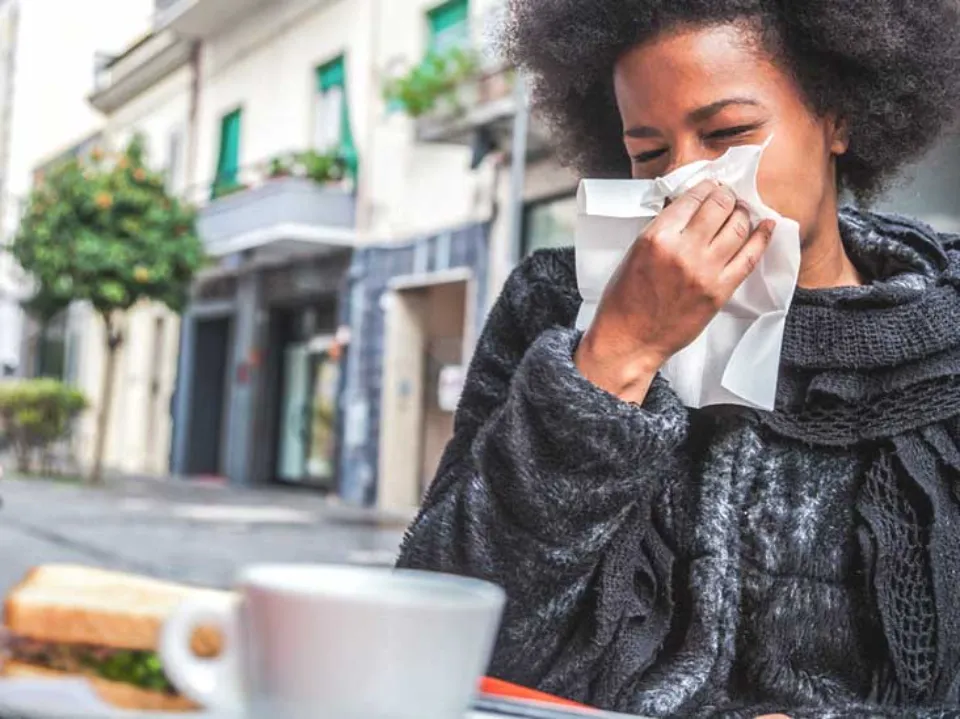
Symptoms of gustatory rhinitis usually come on within minutes of eating and can include:
- Sneezing
- A runny nose
- Nasal congestion or stuffiness
Gustatory rhinitis is especially common after eating spicy or hot foods including:
- Hot peppers
- Curry
- Wasabi
- Hot soups
According to an article in the journal Current Opinions in Otolaryngology and Head and Neck SurgeryTrusted Source, there are special receptors in the lining of the nose that detect capsaicin, a compound found in chili peppers. These fibers can cause one or more sneezes when they find capsaicin.
By staying away from foods that cause these symptoms, one can prevent them. To learn what foods make their gustatory rhinitis worse, they might want to keep a food and symptom diary.
A Cold Or Flu
In addition, it’s possible for someone to sneeze after eating if they have a cold or another illness. Sneezing and eating, though they may appear to be connected, are two distinct events.
Food Allergies
A person may occasionally sneeze after ingesting foods to which they are particularly sensitive or allergic. You might also experience mild skin rashes or itchy eyes.
Anaphylaxis, a severe allergic reaction that causes extreme swelling and breathing difficulties, can occur in extreme cases. Milk, eggs, peanuts, soy, and tree nuts are some of the most typical foods that can cause allergies.
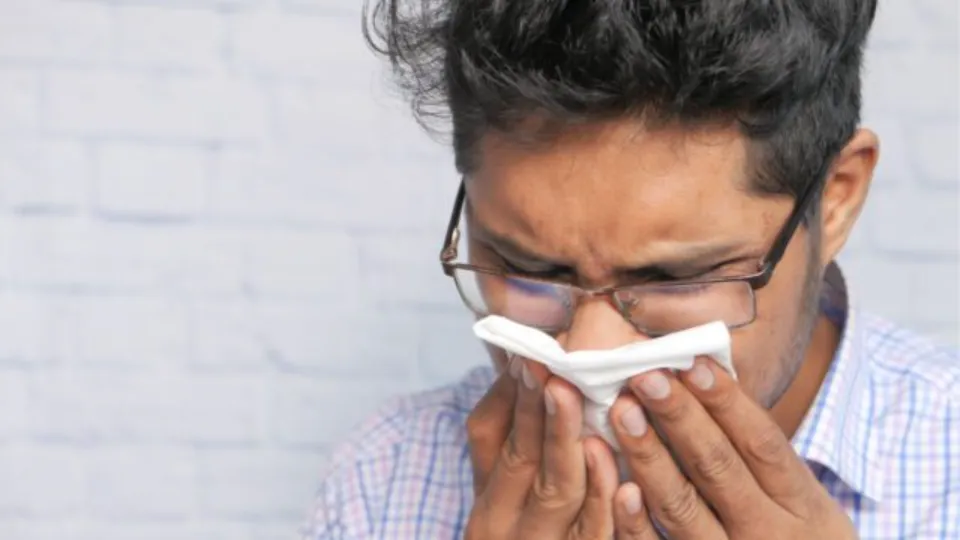
How to Prevent Sneeze After Eating?
Here are some tactics you can employ. Remember that not all instances of sneezing after eating can be avoided. Sneezing can be decreased, though, with the help of a few tips. These include:
- holding one’s breath while counting to 10, or for as long as one can do so comfortably. Inhibiting the sneezing reflex in this way helps.
- To stop a sneeze from happening, squeeze the bridge of the nose. Similar to when someone holds their breath, this has the same effect.
- avoiding allergen-containing foods or foods that are known to make someone sneeze. A doctor might advise keeping a food journal or going on an elimination diet if a patient is unsure of which foods cause this reaction.
- eat more frequent, smaller meals rather than a few large ones because large meals can cause the snatiation reflex.
- Using over-the-counter (OTC) decongestants to lessen any nasal swelling or sensitivity that might lead to sneezing after eating, such as pseudoephedrine.
- OTC antihistamine nasal sprays may also help to reduce the incidence of sneezing after eating. Histamines are inflammatory chemicals that can cause sneezing, and these sprays stop their release.
Summary
An irritant in the nasal cavity triggers the body’s natural reflex of sneezing. People occasionally sneeze after eating, which can happen after consuming spicy foods or a substantial meal. Determine the cause of your sneezing before trying to stop it. Avoid the offenders once you have identified them. Consult your healthcare provider about your worries if that doesn’t resolve them.
FAQs
Why Does Spicy Food Cause a Runny Nose?
Because they contain particular compounds that generate heat, like capsaicin, spicy foods can make your nose run. As a retaliation, your nose produces more mucus.
Is There a Treatment for Sneezing After Eating?
Avoiding triggers is the best strategy for preventing post-meal sneezing. However, if you have allergies and notice that you sneeze more during allergy season, over-the-counter allergy medications may be able to help you.

